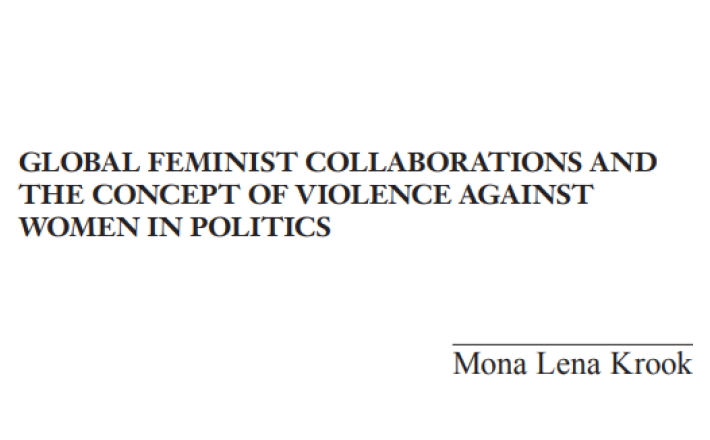Global feminist collaborations and the concept of violence against women in politics
Violence against women in politics is increasingly recognized around the world as a significant barrier to women’s political participation. This article maps how the concept emerged globally, arguing that it has multiple, parallel origins: efforts by locally elected women in Bolivia in the late 1990s to theorize their experiences as political harassment and violence against women; networking by elected women across Asia, with support from global actors, to map and condemn manifestations of violence against women in politics in the mid2000s; and initiatives in Kenya to recognize and tackle electoral gender-based violence in the late 2000s. International actors began to link these debates in the late 2000s and early 2010s, collecting and analyzing testimonies from women to develop new frameworks and toolkits for identifying and addressing violence against women in politics. They also sought opportunities to embed these new understandings into existing normative and political frameworks. Arguing that concept formation plays a crucial role in global feminist politics, the article illustrates how feminist collaborations are essential for giving voice to women’s experiences and mobilizing for change.
Click here to see the report.

Violence against women in politics is increasingly recognized around the world as a significant barrier to women’s political participation. This article maps how the concept emerged globally, arguing that it has multiple, parallel origins: efforts by locally elected women in Bolivia in the late 1990s to theorize their experiences as political harassment and violence against women; networking by elected women across Asia, with support from global actors, to map and condemn manifestations of violence against women in politics in the mid2000s; and initiatives in Kenya to recognize and tackle electoral gender-based violence in the late 2000s. International actors began to link these debates in the late 2000s and early 2010s, collecting and analyzing testimonies from women to develop new frameworks and toolkits for identifying and addressing violence against women in politics. They also sought opportunities to embed these new understandings into existing normative and political frameworks. Arguing that concept formation plays a crucial role in global feminist politics, the article illustrates how feminist collaborations are essential for giving voice to women’s experiences and mobilizing for change.
Click here to see the report.